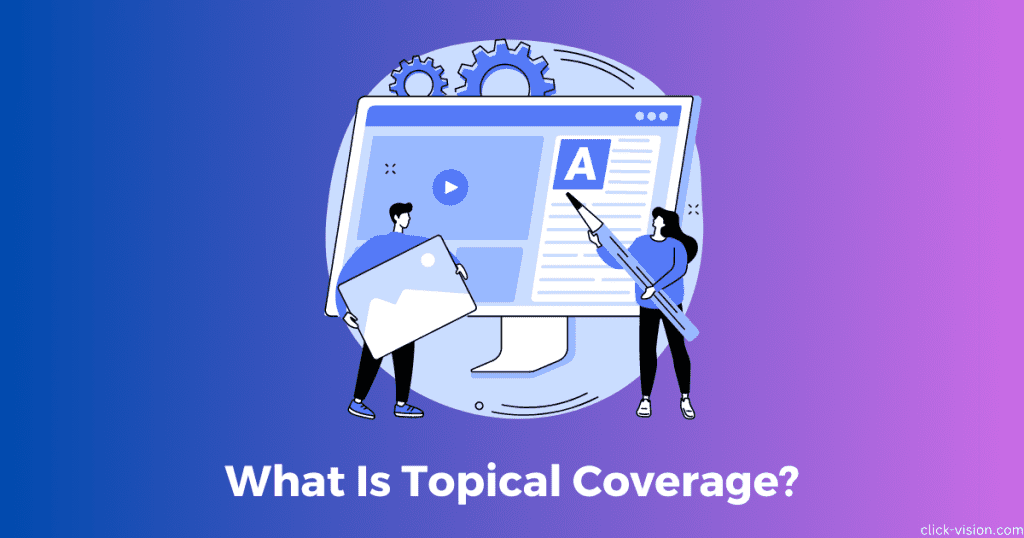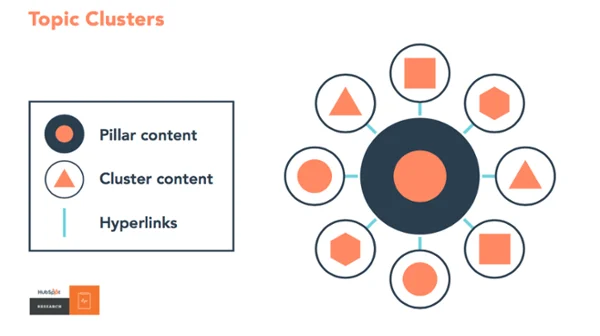Today’s high rankings in search results require more than just strategic keyword placement across plain content. Search engines analyze content differently, paying attention to content relevance and topical authority. These two terms depend on a third, and that is topical coverage. But what is topical coverage, and why is it an important factor in search engine rankings?
To answer these questions, we will analyze the factors that impact topical coverage and the benefits it provides for high SERPs rankings.

What Is Topical Coverage?
Topical coverage is a term used to explain the level at which a website covers all the topics in a specific niche. There is no metric to measure the level of topical coverage. It is derived from several SEO factors, like:
- The content value and quality
- The internal linking strategy
- The website structure
Content is the foundation of providing good topical coverage. If a website doesn’t have enough content to cover a topic, then its topical coverage will be low.
There is another important term that boosts topical coverage, and that is “topical context”. Topical context refers to how the content topics interlink regarding similar concepts.
For example, if you have a website about learning digital marketing, most topics will be interconnected in an educational context.
Understanding topical mapping will also help you determine the search intent and provide content tailored to the users’ needs.
The Benefits of Topical Coverage
Topical coverage showcases E-E-A-T
E-E-A-T is a short term used to describe four levels of competitiveness:
- Experience
- Expertise
- Authoritativeness
- Trustworthiness
It is a part of Google’s Search Quality Evaluator Guidelines, which explain how quality raters analyze and measure the success of Google’s algorithms.
Google uses E-E-A-T to evaluate the content quality of websites online. With it, Google can determine which websites rank higher based on the influence and value of their content. Topical coverage directly impacts E-E-A-T.
In other words, the more relevant topics you cover that are related to your niche, the higher your E-E-A-T score, and the higher your website ranks on Google.
This also works the other way around.
Having experience, expertise, and authority within your niche helps you cover content topics no competitor has covered. This increases topical coverage and showcases trustworthiness from readers.
Topical coverage boosts audience reach
Audience reach refers to the number of visitors that have seen your website and its content online. In other words, it is the number of unique people who have seen your content.
The goal of any website online is to boost audience reach as much as possible. You can do this in two main ways:
- By creating valuable content with topical mapping.
- By organically advertising your site and content or through various channels like paid ads, social media, etc.
Topical authority and coverage are established in the first segment – when you create valuable content.
This means that once established, it directly and positively influences audience reach.
Topical coverage helps acquire more organic backlinks
The third consequential benefit of topical coverage is its ability to provide you with even more backlinks to your site.
Topical authority is gained through backlinks, but the opposite is also true. In other words, a high level of topical authority and coverage easily drive backlinks to your site.
This happens because of your site’s increased chances to rank high in the SERPs, driving more organic traffic and people who want to link back to it as a credible source of information.
How to Establish Topical Coverage in Any Niche
Developing topical coverage means paying more attention to on-page SEO strategies. This involves aspects like content creation, internal linking, website structure, and technical optimization.
Good topical coverage is later used to boost off-page SEO strategies like link building and vice versa.
Provide valuable content based on keyword research
The first and most important step in establishing topical coverage is researching and writing unique and valuable content.
The content needs to be based on:
- Proper keyword research
- Logical topic clusters
- The E-E-A-T framework
Proper keyword research is essential for establishing topic authority and topic coverage. After all, what is topical coverage if not content creation based on relevant keyword clusters?
Keyword research involves several steps which allow you to find relevant keywords and combine them into keyword/topic clusters.
You can then use those logical topic clusters to research and create content information, combining it with your niche’s experience, expertise, and authority.

Source: revenueriver.co
Use logical internal linking based on topic clusters
Parallel to creating content, you have to develop an interlinking strategy based on topic clusters. The interlinking strategy will help search engines understand the connections between the pieces of content on your website.
Through it, they will prioritize the pieces of content that are the most relevant, depending on the level of link juice that each page receives.
The more internal links leading to a certain page, the more that page gains in topical relevance.
Numerous interconnected content pieces will ultimately signal to search engines that topical coverage is high in the specific niche.
Build a solid website structure
Lastly, building a well-structured website is very beneficial for topical coverage. It gives directions to users and search engines, making it easier for them to navigate your site.
A good website structure is characterized with:
- Well-categorized topics
- Logical interlinking
- Navigational elements like the main menu, breadcrumbs, sidebar navigation, etc.
- A clear URL structure
- A functional sitemap
There are four basic website architecture types:
- Hierarchical
- Linear
- Webbed
- Database based
Websites with high levels of topical coverage will have a combination of these architecture types, depending on how specific the content is.
Conclusion
If you want your website to become an authority in your niche, then you have to make sure to cover every possible topic in it.
Topical coverage is the way search engines analyze and rank website content. They first pay attention to the content’s value and how it is topically relevant to the search intent.
If you want your website to rank at the top of Google’s search results, you have to provide expertise, experience, authority, and trustworthiness through content.
What do you think about the whole concept of topical authority? What is topical coverage, in your opinion? Do you think that it acts as a ranking factor?
Let us know what you think in the comments.
